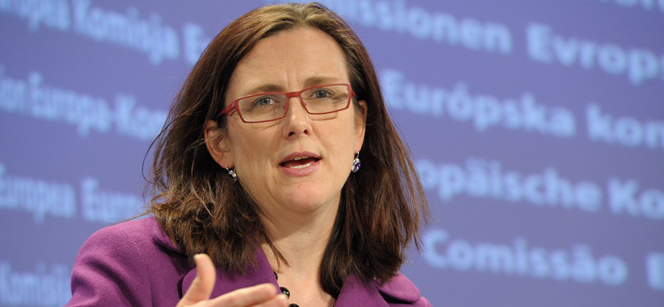


Accessibility tools
Service tools
Language selector
Navigation path
Left navigation
Additional tools
13 July 2010

"We need immigrant workers in order to secure our economic survival", stated EU Commissioner for Home Affairs Cecilia Malmström today as the Commission adopted proposals for two directives on labour migration to the EU.
The proposals seek to establish a common framework for conditions of entry and stay for two types of workers: seasonal workers and so called intra-corporate transferees.
Seasonal workers are workers from non-EU countries coming to EU Member States to work for a shorter period of time in season-driven sectors such as agriculture, horticulture and tourism. With today's regulations, this type of temporary workforce is often subject to exploitation and to conditions that put their health and safety in danger.
"People are taken to Europe under sometimes horrible conditions to work for very little pay. We witnessed the tragic riots in Rosarno earlier this year, and we need to protect these people and prevent these things from happening again. Therefore I am now introducing a special procedure for entry and residence for seasonal workers, as well as clarifying what rights they should have while staying in Europe", said Cecilia Malmström.
A quite different type of non-EU workers is called intra-corporate transferees. They are key personnel in multinational companies who get transferred on a temporary basis to a branch or subsidiary of their own company in an EU Member State. Up until now, businesses have been facing an array of 27 sets of rules and regulations and often lengthy procedures to manage this type of transfers. With today's proposal, companies would get access to the right people with the right skills at the right time, while the intra-corporate transferees themselves would get more attractive residence conditions, more flexible rules for bringing their families to Europe, a clear legal status and they would more easily be able to move in between Member States if that is required for carrying out their work.
"As acknowledged in the EU 2020 Strategy, migration can play an important role in filling labour shortages, fuelling economic growth and helping Europe to maintain our economic and social welfare and strengthen our competitiveness. In light of the demographic challenge the EU is facing, where our active population is forecasted to start falling already in 2013, we need immigrant workers in order to secure our economic survival. I will continue to take more steps towards a more inclusive labour migration policy for the EU in the coming years", said Cecilia Malmström.
Read more on the two proposals below and watch a video on the proposal for the Seasonal Workers Directive.